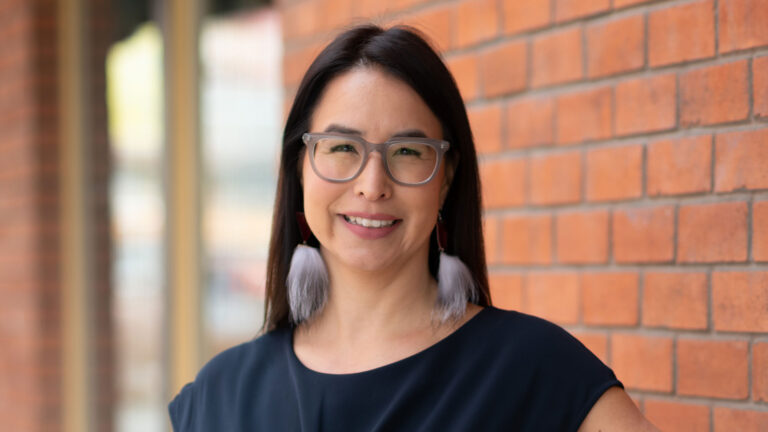Fatima is a drop-in support worker at Boyle Street Community Services in Edmonton. Serving over 12,000 individuals each year, Boyle Street provides a safe, welcoming, and comfortable place for people to visit and access a variety of services including meals, recreation, and support.
However, many of Boyle Street’s clients face multiple barriers to inclusion including mental illness, homelessness, and substance misuse. It is Fatima’s job to overcome communication barriers each day that stand in the way of building relationships that make a difference.
There are challenges every day, but it’s a job that Fatima says comes naturally to her. “I never wanted an office job. I love dealing with and working with people face-to-face all the time,” says Fatima.
Here Fatima shares five things that help maintain her professionalism, optimism, and a “client-first” outlook even when interpersonal situations get tough.
1. Acknowledge your discomfort and redirect it into meaningful action.
It’s normal to feel uncomfortable sometimes, says Fatima. “It’s a natural physiological response.” The only way forward is to acknowledge where you’re coming from and be humble in what you don’t know.
For Fatima, this includes acknowledging and being aware of the history and the forces that shape the prejudices that many of her clients face daily—an action that she admits sounds easier said than done.
“There are a lot of things that we accept as facts because it’s easier than actually dealing with how complicated reality is. They’re things that we as a culture use to justify why people are in the position they’re in. For instance, we rarely think about the effects of residential schools or the Sixties Scoop,” she says, referring to historical government-sponsored schools and the mass removal of indigenous children from their families to the child welfare system.
“The more you know about people’s histories and what they’ve struggled with—whether it be indigenous peoples, Syrian refugees, or newcomers—and the more you say to yourself, ‘Let me find out some information,’ that’s what humanizes people.”
2. Reset. Take a breath.
You set the tone of the conversation between yourself and your client or patient, says Fatima. So, take a breath and try to relax when you find yourself in a difficult interaction.
“For me, it’s about calmness. You set the tone with your humour and with your smile,” says Fatima. “You have nothing to lose. Even when things get bad, there are ways to remain consistent with your attitude. That’s my definition of professionalism. No matter how bad things might get, I always have that baseline of calmness.”
3. Plan ahead.
It’s easier to react professionally and with compassion in difficult or awkward situations when you make a plan that works for you.
Fatima’s advice? Plan ahead for how you would like to act in your own personal “worst case scenario.” Get experimental and find an interaction style that balances both your professional and personal self.
Are you naturally humorous? Run a couple jokes if the situation allows for it. Are you more of a serious type? Try a few different greetings to see which one suits you best.
Says Fatima, “Your job as a healthcare professional may involve following procedures, but you’re also a person. Find a balance between your professional self and your personal self. You can use your judgement and your intuition—all those things, all the time.
Your ‘professional’ hat doesn’t need to be small and narrow. In fact, it should get bigger as a healthcare professional, so it can hold and make room for all the individual complexities of your patients.”
4. Don’t take it personally.
Many of Fatima’s clients deal with the effects of trauma, and a rare outburst of emotion may occur during her shift. However, keeping perspective can help you brush it off and maintain your professionalism, compassion, and optimism.
“Besides it being unfortunate and unnecessary, what do I actually have to lose? Not to say that I take a lot of abuse, but at the end of the day, what keeps me feeling really safe is knowing that I’m not the one that has to sleep outside. This is just them reacting—this is their life,” says Fatima.
“Even when things blow up, by having a system, process, or plan in place prevents us from blaming or ostracizing people for things that they are going through.”
5. Build relationships piece by piece.
Building relationships takes time, especially in Fatima’s line of work. One thing that has worked for her is to cultivate relationships in small steps.
“I just start by saying hi and seeing where it goes from there. Keep eye contact. I think to myself, ‘How can I make this person’s day a little brighter in my own personal way?’ From there, maybe there’s room to build. These people have so much wisdom and knowledge about themselves and what works for them. When you really look at it, you’re just dealing with people. Just one person at a time.”




